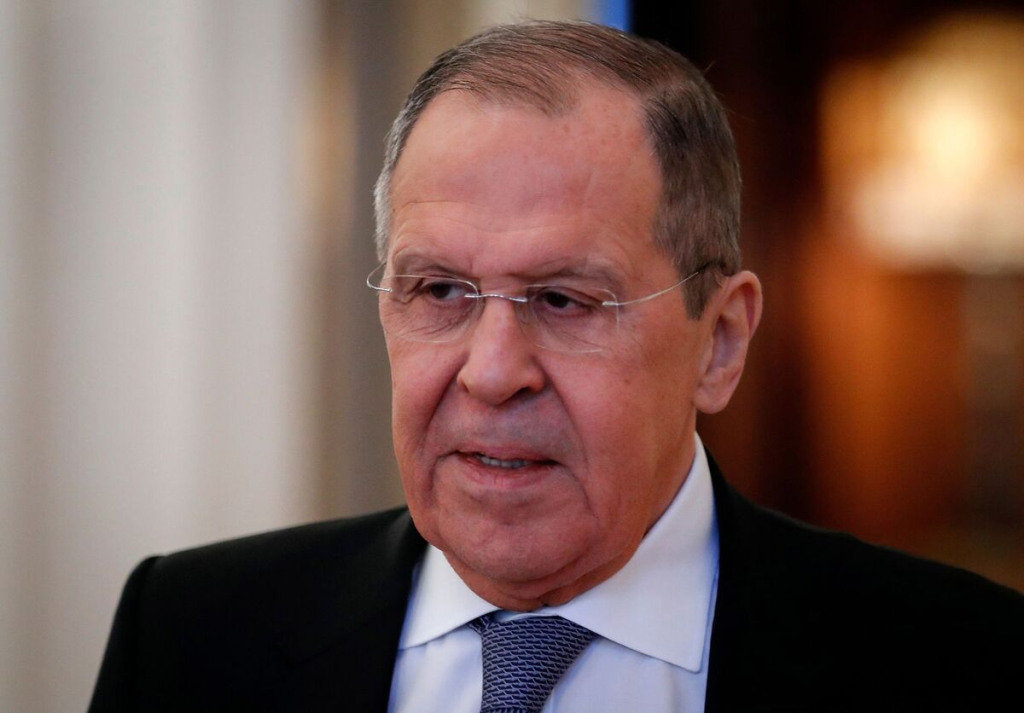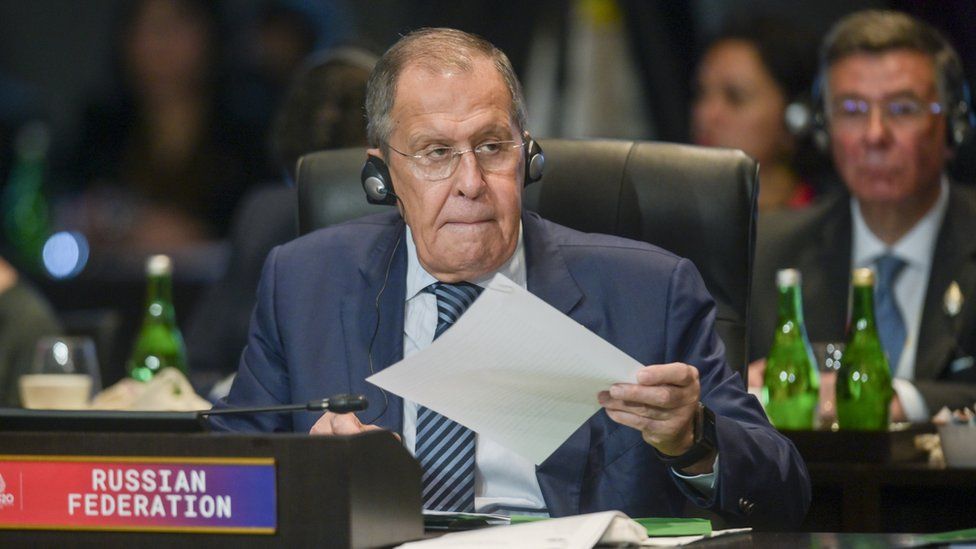Russian Foreign Minister Sergey Lavrov has clearly laid out Russia’s conditions for ending the war with Ukraine. In a recent interview with Brazilian media, Lavrov spoke about several key demands that Moscow sees as necessary to resolve the ongoing conflict. His comments were reported by the Brazilian outlet O Globo.
Lavrov said that one of the most important conditions is that Ukraine must become a neutral country. This means Ukraine would have to officially give up any plans to join NATO. Lavrov stressed that Ukraine must legally recognize its neutral status and stay out of military alliances permanently.
Besides the neutrality demand, Lavrov also insisted that Ukraine and the international community must recognize Russia’s control over several occupied territories. He listed Crimea, which Russia annexed in 2014, as well as the Donetsk, Luhansk, Kherson, and Zaporizhzhia regions. According to Lavrov, these areas are now part of Russia and this fact should be accepted and recorded in international law.
Lavrov also brought up the issue of Russian-speaking citizens in Ukraine. He accused Ukraine of violating their rights and used this as another justification for Russia’s demands. Russia has often claimed it is protecting Russian speakers, although many experts say this is just an excuse for expanding Russian influence.
Another strong demand from Lavrov is that Ukraine must undergo what Russia calls “demilitarization and denazification.” These are terms Russia has often used to describe its goal of weakening Ukraine’s military and political independence. In reality, many believe these phrases are used by Russia to try to control or even erase Ukraine’s identity as a nation.
In addition to these points, Lavrov made it clear that Russia expects the West to lift all sanctions placed on Moscow since the war began. He said that the sanctions must be fully removed, and any financial assets that were frozen by Western countries must be returned to Russia. Lavrov also demanded that international arrest warrants against Russian officials, including President Vladimir Putin, should be dropped immediately.
Lavrov’s list of demands shows that Russia wants major political and territorial changes in Ukraine, along with a rollback of the many economic and legal actions taken by the international community against it. These demands, however, are unlikely to be accepted by Ukraine or its allies, as they would mean Ukraine giving up large parts of its land and sovereignty.
Many experts believe that these conditions reveal Russia’s true goals, which go far beyond just stopping the fighting. They suggest that Russia is seeking to reshape Ukraine completely, both territorially and politically, to suit Moscow’s interests. The demands also show that Russia wants to reverse the international punishments it faced after launching the full-scale invasion of Ukraine in February 2022.

Lavrov’s statements have drawn criticism from many parts of the world. Ukrainian officials have already said they will not agree to surrender territory or give up their ambitions to join Western alliances like NATO. The United States and European Union have also made it clear that they stand firmly behind Ukraine’s sovereignty and territorial integrity.
Analysts point out that Lavrov’s demands seem less like genuine steps toward peace and more like a list of ultimatums that Ukraine and its allies are unlikely to ever accept. Ukraine’s President Volodymyr Zelenskyy has repeatedly said that any peace agreement must include the return of all Ukrainian territories, including Crimea, and must respect Ukraine’s right to decide its own future.
Meanwhile, the fighting continues on the battlefield, with no signs of a ceasefire. Russia’s ongoing attacks and Ukraine’s resistance show that both sides are preparing for a long conflict, despite occasional talks about negotiations.
In the bigger picture, Lavrov’s comments reflect Russia’s attempt to shift blame for the war onto Ukraine and the West. By presenting these conditions, Russia is trying to show that it is open to ending the war, but only on its own terms, which many around the world see as unrealistic and aggressive.
As of now, there is little hope that Lavrov’s demands will lead to any breakthrough. Ukraine remains determined to defend its territory and sovereignty, and its allies have promised to continue supporting it. For many observers, the path to peace still seems very far away.
Disclaimer: This article has been meticulously fact-checked by our team to ensure accuracy and uphold transparency. We strive to deliver trustworthy and dependable content to our readers.


